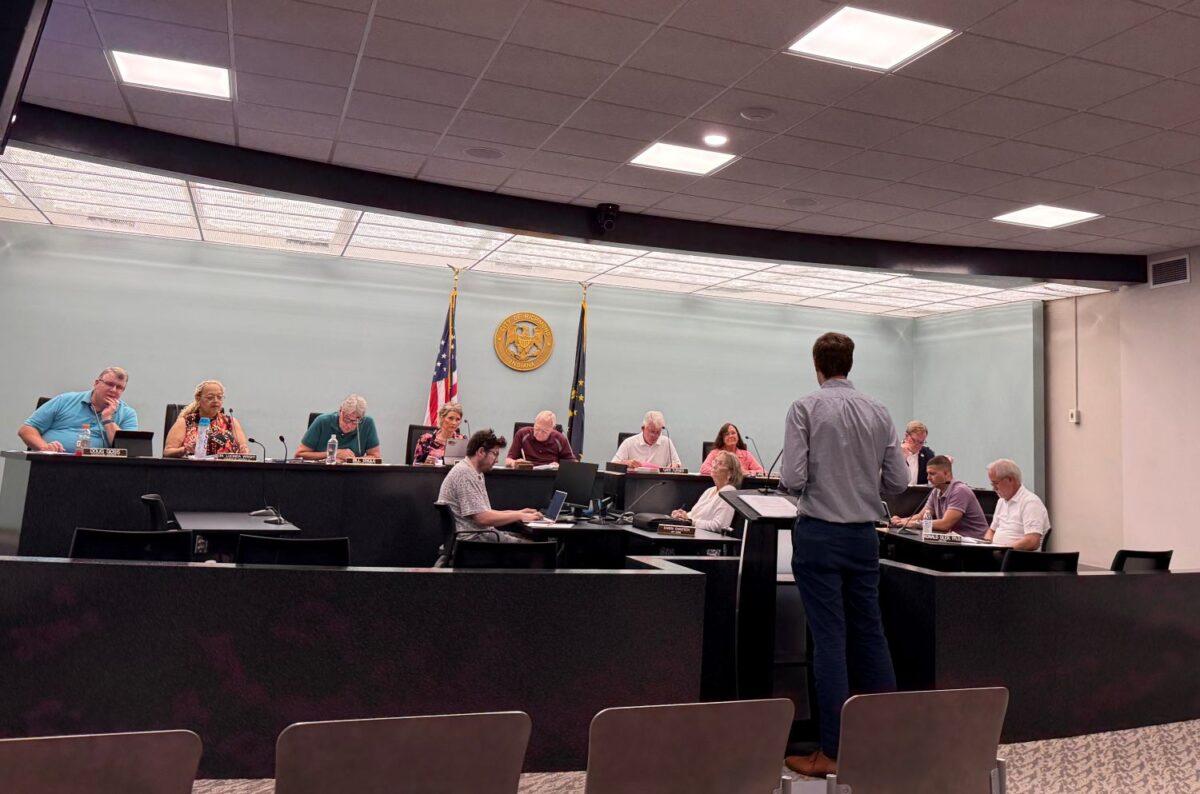A federal initiative to make sure low-income and disadvantaged communities can benefit from access to solar-powered electricity might include Richmond neighborhoods soon, if the government doesn’t reverse course and cancel the program.
That’s according to a presentation from the Richmond Environmental Sustainability Commission at Richmond Common Council’s July 21 meeting. Commission member Alison Zajdel brought the opportunity to council members in the form of a potential $3 million investment of federal tax dollars with no local matching funds or long-term commitments required. Council just had to say “yes” to the project, and they did, voting unanimously to move it forward.
Zajdel said Richmond had been invited to participate in the program just about six weeks ago, joining Indianapolis, Gary, Columbus, South Bend and other communities that could split over $117 million in designed funds with a very narrow mandate. Local leaders quickly started conversations about how best to help Richmond better leverage solar harvesting options for disadvantaged residents and landed on the idea of creating two “resilience hubs.”
The hubs would be centralized, easy-to-access locations with solar panels and storage batteries that could provide emergency power to those affected by extreme weather, such as someone who needs to keep medical devices working in the event of a power outage. Morrisson-Reeves Library and a Richmond Housing Authority building are tentative partner locations.
The $7 billion program is administered federally by the Environmental Protection Agency and in Indiana by the nonprofit Indiana Community Action Association Inc. It is the result of $27 billion in appropriations made by Congress as a part of the 2022 Inflation Reduction Act to help address the global climate crisis.
INCAA won a competitive grant process in 2023 and the funds were awarded in 2024, but Zajdel says recent shifts in federal policy and attempts to claw back funding might undo all of that. Zajdel says the team is watching federal developments closely and trying to understand the ramifications for energy efficiency projects.
Still, council members were comfortable offering their blessing for the city to receive and spend the funds if they do come through. Council’s finance committee had reviewed the details with Zajdel’s team in a July 7 meeting, and committee chair Justin Burkhardt said they all agreed that it is an “incredible opportunity.” Council member Bill Engle thanked the team for jumping on the possibility and assembling a “terrific” presentation.
Building boom
Council heard from Dustin Purvis, head of the Department of Infrastructure and Development, about his team’s work. Purvis described the steady or increasing pace of requests for building and improvement permits, plan commission activity, and other factors as an indicator of strong local economic activity.
For example, Purvis said the building and inspections division has seen $6,689,059.54 of investments in residential building and improvements so far in 2025, more than they’ve seen any year since 2020. He said the investments in East Main Street in downtown Richmond alone — more than $14 million this year — are a substantial increase over recent years.
Purvis said discussions continue about the possibility of creating a historic conservation district in downtown Richmond, first reported by the WWN June 18. The Historic Preservation Commission is facilitating research and conversations with property owners within the proposed district to understand the implications.
Purvis also described the ways the city has increasingly leveraged Geographic Information System data to provide services and make data-driven decisions. Purvis said GIS coordinator Thomas Hill has created tools that increase public access to information, such as about upcoming public hearings on property-related matters, and that allow administrators to prioritize resources more effectively.
Other business
Council approved a budget amendment, appropriating $12,000 from the fire pension fund to cover the cost of physicals.
The next meeting of Richmond Common Council is Monday, Aug. 4, at 7 p.m. in council’s chambers on the third floor of the city building at 50 North 5th Street, Richmond, followed by the Richmond Power and Light board meeting at approximately 8 p.m. The public may attend both.
A version of this article appeared in the July 30 2025 print edition of the Western Wayne News.

